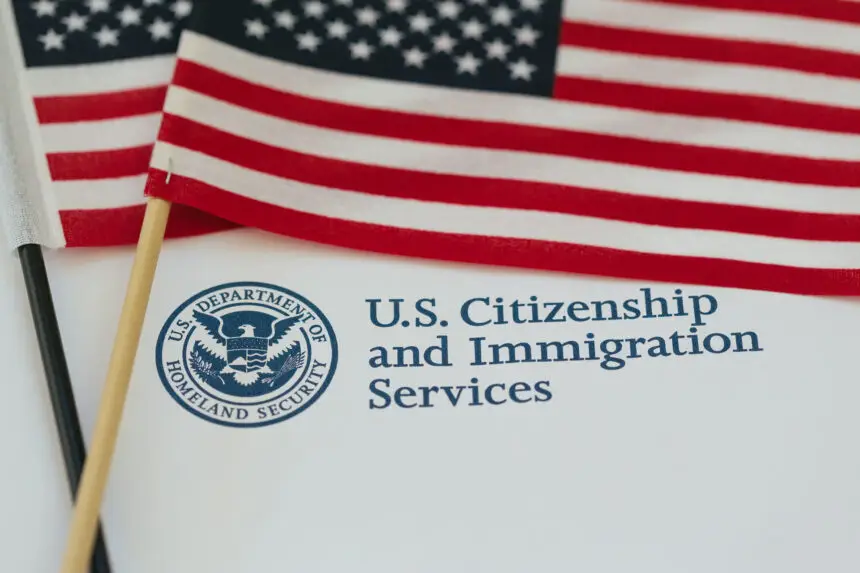As the United States prepares for the inauguration of the Trump administration on January 20, 2025, immigration lawyers are urging individuals to act quickly to secure their legal status.
This call to action is especially relevant for the more than 11 million people living in the U.S. without proper legal documents.
Among these individuals are many Haitians, the majority of whom rely on Temporary Protected Status (TPS), humanitarian parole, or CBPOne for legal standing. A significant number are also asylum seekers awaiting decisions on their cases. These programs, which have provided vital relief to immigrant communities, are reportedly at risk of being terminated under the policies proposed by Donald Trump during his campaign.
To help navigate this uncertain time, immigration lawyers are offering a range of tips to mitigate potential challenges. Below is a comprehensive guide to actions that individuals should consider taking before the January 20 inauguration.
1. Visa Applications and Consular Cases
For individuals planning to apply for visas or with pending cases at U.S. consulates:
- Expedite Visa Appointments: Schedule visa interviews as soon as possible. If local consulates are unavailable, explore options in countries like the Dominican Republic or Mexico.
- Follow Up on Pending Cases: Proactively contact consulates to ensure timely decisions on your applications.
2. Work Visa Petitions
For those holding or applying for work visas:
- Use Premium Processing: If your petition has complexities, such as issues with start-up company status or specialty occupations, pay the $2,805 premium processing fee to secure a decision within 15 business days. Acting now minimizes the risk of your case being delayed or impacted by new policies.
- Apply for Extensions: File for extensions promptly if your work visa expires in the next six months. If your employment terms have changed significantly, you may be eligible to file earlier.
3. Adjustment of Status and Naturalization
If you qualify for adjustment of status or naturalization, file your applications without delay:
- Form I-485 (Adjustment of Status): Include requests for Employment Authorization Documents (EAD) and Advance Parole to facilitate work and travel during the processing period.
- Form N-400 (Naturalization): Submit your application as soon as possible to avoid potential procedural changes.
4. National Interest Waiver Petitions
If you meet the requirements for the National Interest Waiver I-140 petition under the Matter of Dhanasar precedent, file immediately. Stricter standards could be implemented under the new administration.
5. TPS and DACA Relief
- TPS Applications: If you are eligible for TPS but have not yet applied, do so now. Even if the program faces challenges, it will take time to terminate, allowing you to secure benefits like work permits and travel authorization.
- Advance Parole for DACA Recipients: For individuals with TPS or DACA who entered the U.S. without a visa and have U.S. citizen or permanent resident relatives, consider applying for advance parole and making a brief trip outside the U.S. to establish legal entry.
6. Employment Authorization Documents (EADs)
If your work authorization expires within six months, file for renewal immediately. While early renewals may carry risks, acting now could prevent gaps in your employment eligibility.
7. Long-Term Residents Without Proper Documentation
If you have lived in the U.S. for more than ten years and have U.S.-born children under 21 or a U.S. citizen or permanent resident spouse, gather documentation proving your continuous residency. This evidence will be critical if you face court proceedings in the future.
8. Immigration Court Changes
Prepare for potential shifts in immigration court schedules. Stay in contact with your legal representative and monitor updates about your case to ensure you remain informed.
A Time for Proactive Action
The incoming administration has signaled its intent to implement strict immigration policies, including plans to end critical programs like TPS, humanitarian parole, and CBPOne. These measures, if enacted, could have far-reaching consequences for millions of people, including many Haitian immigrants.
One immigration expert emphasized the urgency of these actions:
“Taking steps now can help safeguard your status and minimize disruptions to your life. The earlier you act, the more protected you’ll be against potential changes.”
For more information or assistance with your immigration case, consult a trusted legal advisor or visit GP Immigration.
Caribbean Television Network (CTN) is dedicated to empowering immigrant communities through accurate and compassionate reporting. Stay connected with us for updates on policies affecting our community and guidance to help you navigate this critical time.







